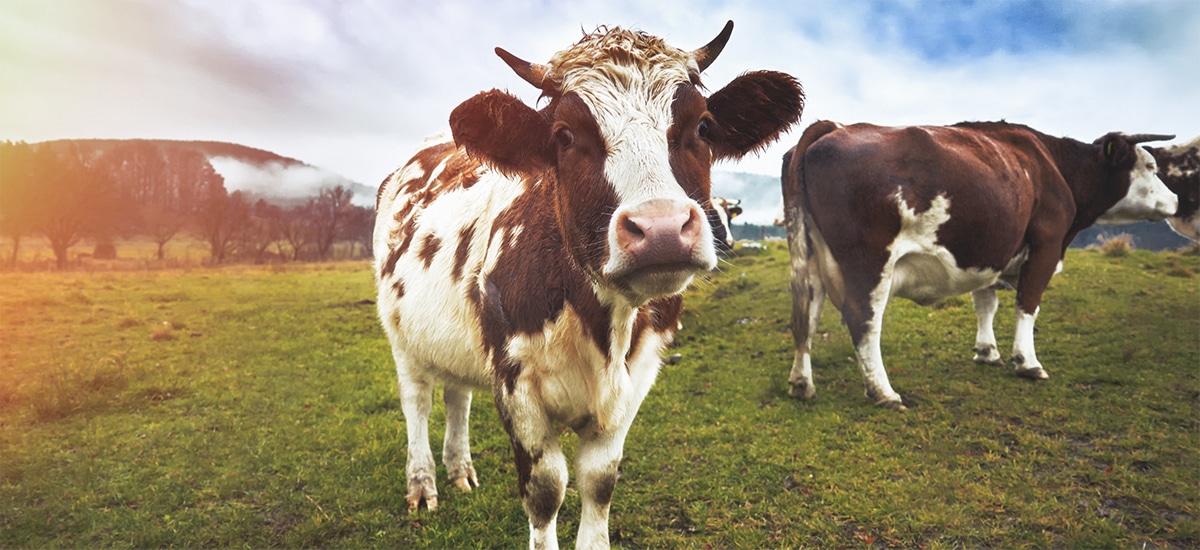
Hormone-free meat - what it all means
Hormone-free meat. It’s an industry buzzword. It’s spread to become a generally well-known debate amongst the public. But what does it mean and why is it important?
Hormone-free meat is actually a bit of a misnomer. All meat has naturally occurring hormones, so the term usually refers to meat that has been raised without extra, artificial hormones being added. These include estrogen, progesterone and testosterone, and are used to promote growth.
While these hormones do occur naturally in a wide range of foods, it’s been suggested that the extra concentration in injected meat could be harmful to consumers. The RSPCA has released concerns that these growth hormones can have on the animals themselves, as it may potentially make them more aggressive or susceptible to heat.
… the issue is generally misunderstood and inflated without the evidence being examined.
There are numerous theories as to concerns that could be caused by humans ingesting high amounts of bovine hormones. These include earlier puberties, or an increased risk of cancer from the higher levels of IGF (insulin-like growth factor) created by the extra hormones. Many factors contribute to cancer, but “it’s very likely that at least part of that [risk] is related to IGF levels,” says Walter Willett, MD, chairman of the department of nutrition at the Harvard School of Public Health.
So, at the current level of ingestion, there is no conclusive proof showing these hormones harm humans, though there certainly is a case for it. But, even if evidence existed, it still wouldn’t be very dangerous. The difference in hormone levels between hormone-fed and hormone-free beef, for example, is small. A single consumer would need to eat more than 77 kgs of beef from a hormone-treated animal in one sitting to get the same level of estrogen hormone found in one egg.
So, is ‘hormone-free’ meat healthier? Certainly, but not to a significant degree.
So then why have hormone injections become such an important issue? The reason is the consumers themselves. This issue has been presented by the media and the organic industry as this unscrupulous, dangerous secret of the traditional meat industry and there’s a lot of conflicting information out there about it. So, the issue is generally misunderstood and inflated without the evidence being examined.
… consumer trend presents opportunity for businesses in meat production and trading.
This has created a vague but embedded fear in consumers that hormone-injected meat can cause serious long-term damage. Understandably so, as without an understanding of the facts, the idea we are eating injected hormones can sound terrifying. It summons nebulous memories of that one science fiction we all read, where all the humans mutate due to hormones or genes.
This fear, combined the society’s rapidly increasing health and environmental consciousness have led to a sudden increased demand for ‘hormone-free’ meat. According to Market Research Company, Datassential, over 60% of today’s consumers are very concerned about hormones injected into meats, and 76% are more likely to buy hormone-free meats.
So this very distinct consumer trend presents opportunity for businesses in meat production and trading. Hormone-free meat is now widely available, and hits that product sweet spot. Customers are interested enough in the issue to choose hormone-free or organic meat over other options, and also willing to pay a higher price point for it. Butchers and restaurants can sell it as a value-add, high quality product, while knowing they are providing a healthier, more environmentally conscious option.
Furthermore, as some countries, including Canada and the EU nations, have already banned the use of hormone injections, it might be wise to conform to a trend that only seems to be heading one way. And to err on the side of caution, considering the potential for harm to both animals and human consumers.
However, at the same time, there is no conclusive science proving the harmfulness of hormone injections, which are still considered safe by government regulatory bodies in the industry. So there is no obligation to become part of what may be an over-sensationalised false alarm. ‘Hormone-free’ meat remains a personal, voluntary choice for both consumers and sellers.
Equipping the food industry to grow with food processing and packaging solutions
call 1300 88 99 51
email [email protected]
room 35 Shirley Way, Epping VIC 3076
room 9 Mcilwraith St, Wetherill Park NSW 2164
room 21 Hoyle Rd, Hope Valley WA 6165
room 27 Beal Street, Meadowbrook QLD 4131
room 7 Chadderton Bvd, Epping VIC 3076
room 40 Logistics Boulevard, Kenwick WA 6107
room 25 Hayton Road, Wigram, Christchurch 8042, NZ
Connect with us on LinkedIn
